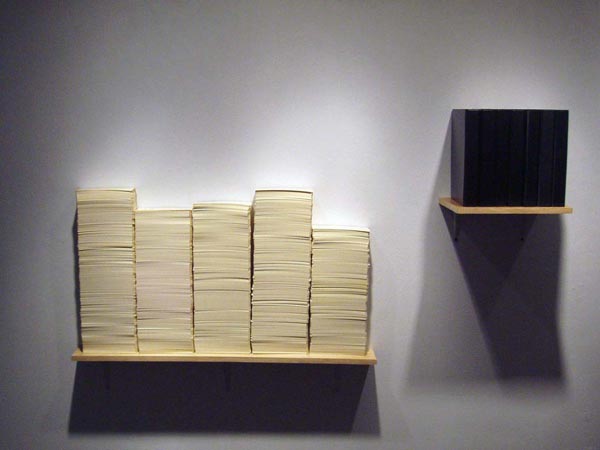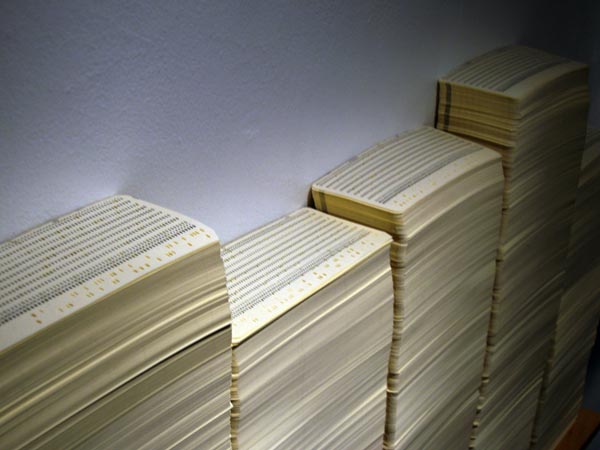

In people, memory is the capacity to retain an impression of past experiences. In technology, memory refers to the parts of a digital computer that retain data for some interval of time. Computers now have the ability to save a lifetime of photographs, videos, audio and communications, changing the way that we reference personal memory. With this change, computers can archive and index memories in a way that we have never been able to do before. Computers have become machines for remembering. Using the most primitive form of digital storage, I have recorded all of the emails stored on my computer into thousands of punched cards. Each card contains fragments of communication layered one on top of another to form an analog representation of my collected digital communications. In the same way that information is stored on the computer, I have created indexes to reference the information. Each index is created by manually sifting through the information, word by word, creating unique directories of my personal communications.


SP: I don't know. Why would it be different from writing, something else that is immaterial? Maybe because music is tied to so many other, more material, areas: performance, fashion, bodies, ritual. Being always in-between makes it easy to project on to. You can talk about the way something moves and is contextualized, what it represents, as a way of discussing other things.